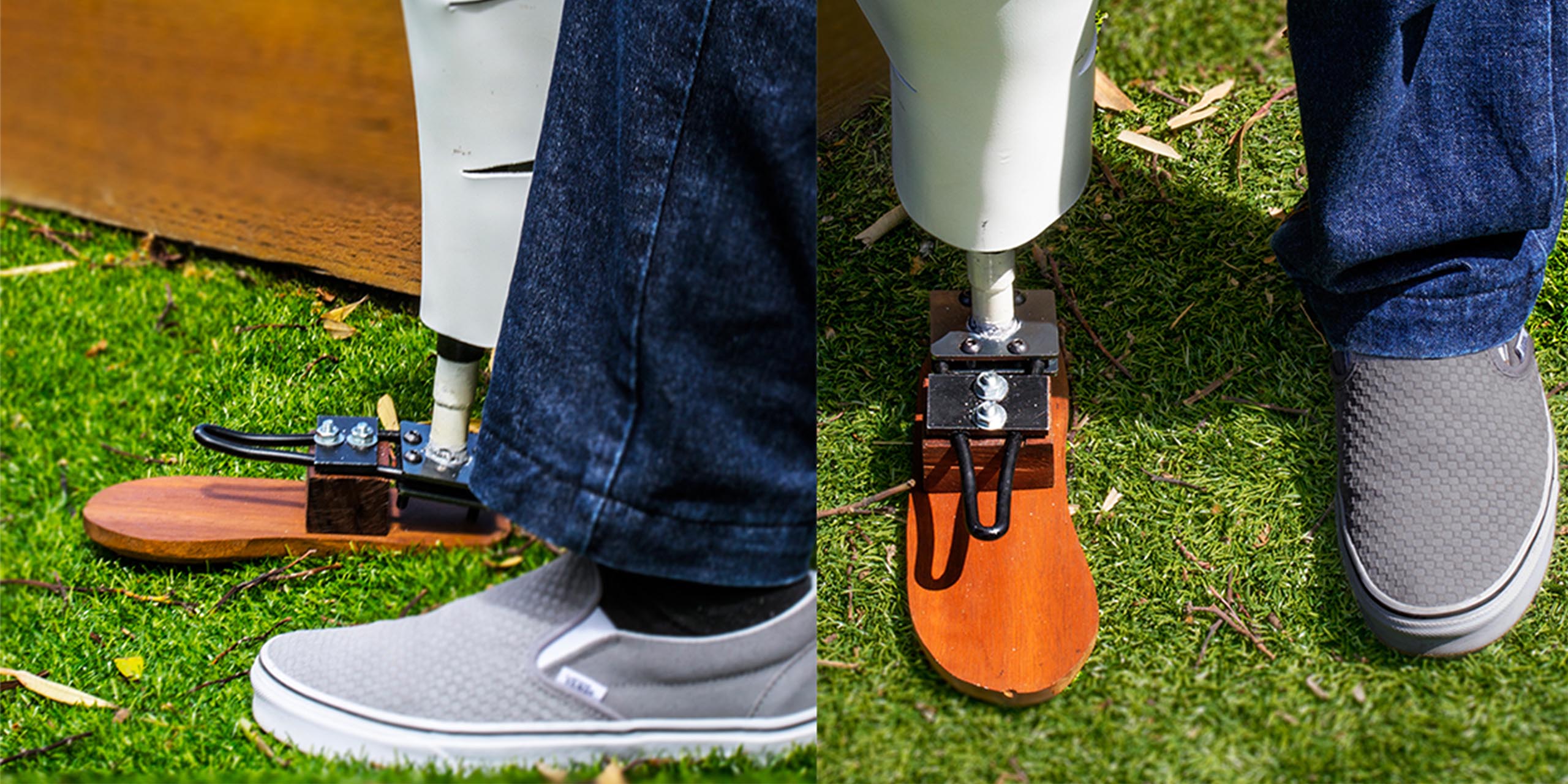This D.I.Y lower limb prosthetic solution was designed for below-knee amputees. It was designed to be crafted, adjusted and repaired by an amputee within a community with a provided D.I.Y manual.
There are three iterative designs that have different levels of craftsmanship, adjustability, and repairability. Which has also been illustrated through a D.I.Y manual, that can be used to safely guide an amputee to fabricate their own prosthetic using the right medical prosthetic processes and practices at key stages of becoming an amputee, when prosthetic services are inaccessible.

